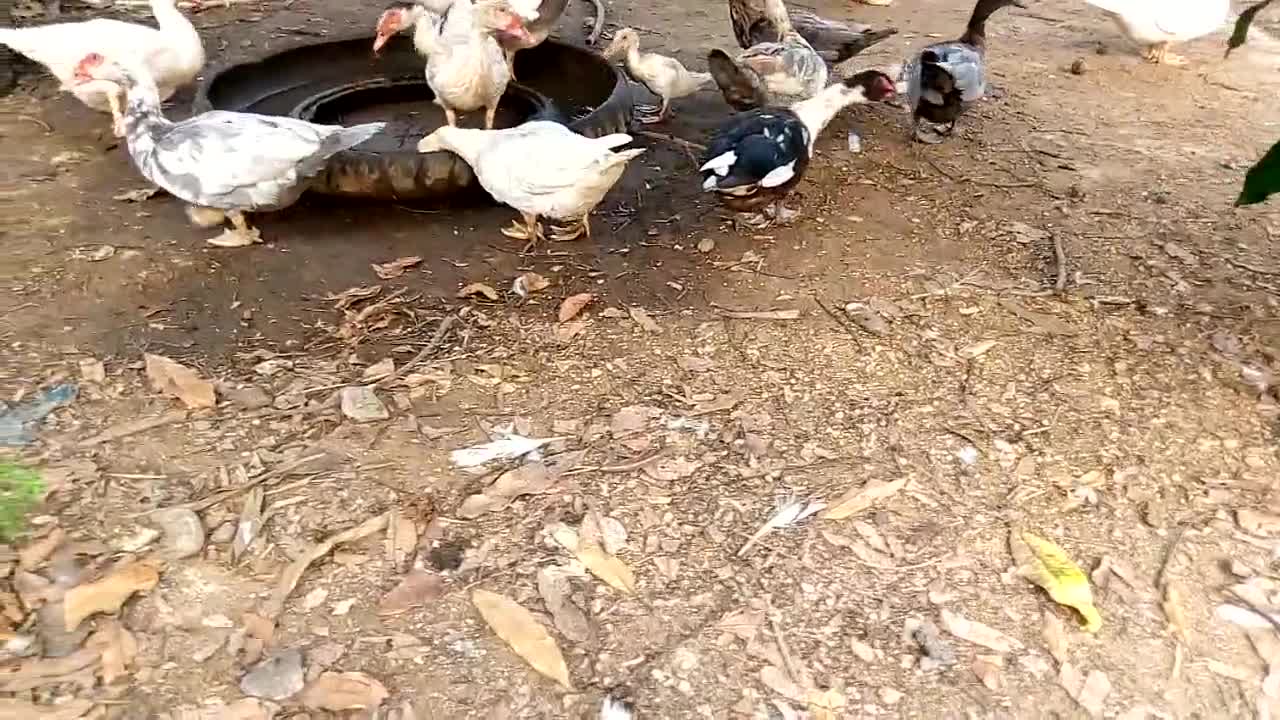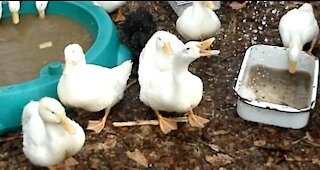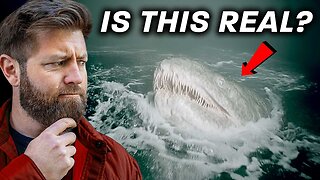Premium Only Content

Group Of Ducks Running Between Grass To Drink Water
Ducks are generally monogamous, although these bonds usually last only a single year. Larger species and the more sedentary species (like fast river specialists) tend to have pair-bonds that last numerous years. Most duck species breed once a year, choosing to do so in favorable conditions (spring/summer or wet seasons).
Ducks also tend to make a nest before breeding, and, after hatching, lead their ducklings to water. Mother ducks are very caring and protective of their young, but may abandon some of their ducklings if they are physically stuck in an area they cannot get out of (such as nesting in an enclosed courtyard) or are not prospering due to genetic defects or sickness brought about by hypothermia, starvation, or disease. Ducklings can also be orphaned by inconsistent late hatching where a few eggs hatch after the mother has abandoned the nest and led her ducklings to water.
Most domestic ducks neglect their eggs and ducklings, and their eggs must be hatched under a broody hen or artificially.
-
 2:41
2:41
HillBillyOwl
4 years agoDucks Drink Water Recorded from Underwater
701 -
 6:28
6:28
HillBillyOwl
4 years ago $0.04 earnedThe Ducks Love to Drink Water From a Hose
1081 -
 LIVE
LIVE
Lofi Girl
3 years agolofi hip hop radio 📚 - beats to relax/study to
286 watching -
 21:37
21:37
Forrest Galante
1 day ago6 Deadly Sea Monsters That Actually Exist
149K10 -
 23:24
23:24
Stephen Gardner
13 hours agoYou WON'T Believe What Happened To Lindsey Graham
72.9K50 -
 8:05:17
8:05:17
SpartakusLIVE
11 hours agoSolos on ARC: UNBANNED
258K12 -
 30:29
30:29
Robbi On The Record
12 hours ago $11.78 earnedWhales Are Selling. Banks Are Nervous. Bitcoin analysis ft Simply Bitcoin Tv
24.9K9 -
 2:28:12
2:28:12
vivafrei
19 hours agoEp. 291: More Epstein Documents! Stacey Plaskett SCANDAL! Butler Cover-Up, Tucker Smea & MORE!
218K280 -
 6:06:22
6:06:22
xLuigi34x
11 hours ago100 Follower Special! Going to 100% The DKC Trilogy on stream!
55.7K9 -
 50:27
50:27
Sarah Westall
9 hours agoMusk Helps Expose the Most Consequential Political Blackmail Operation in Modern British History
40.4K23